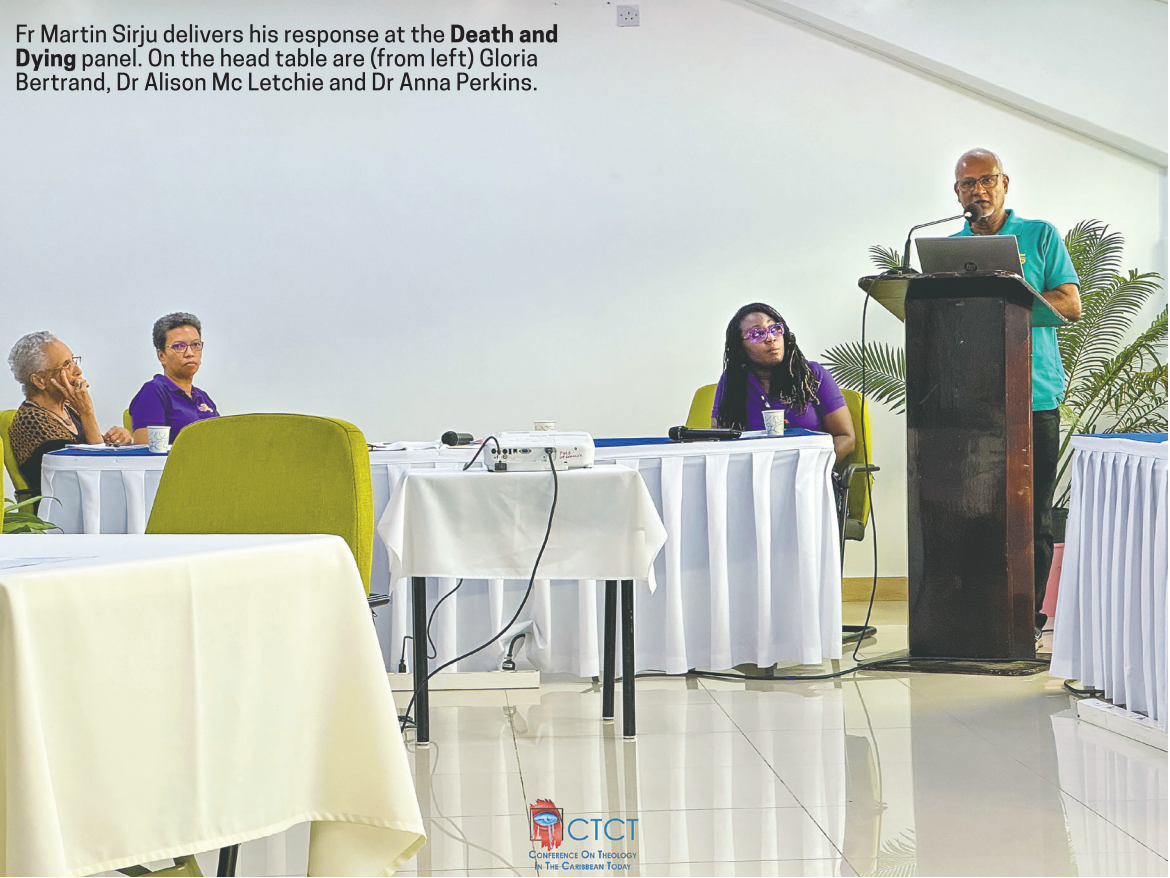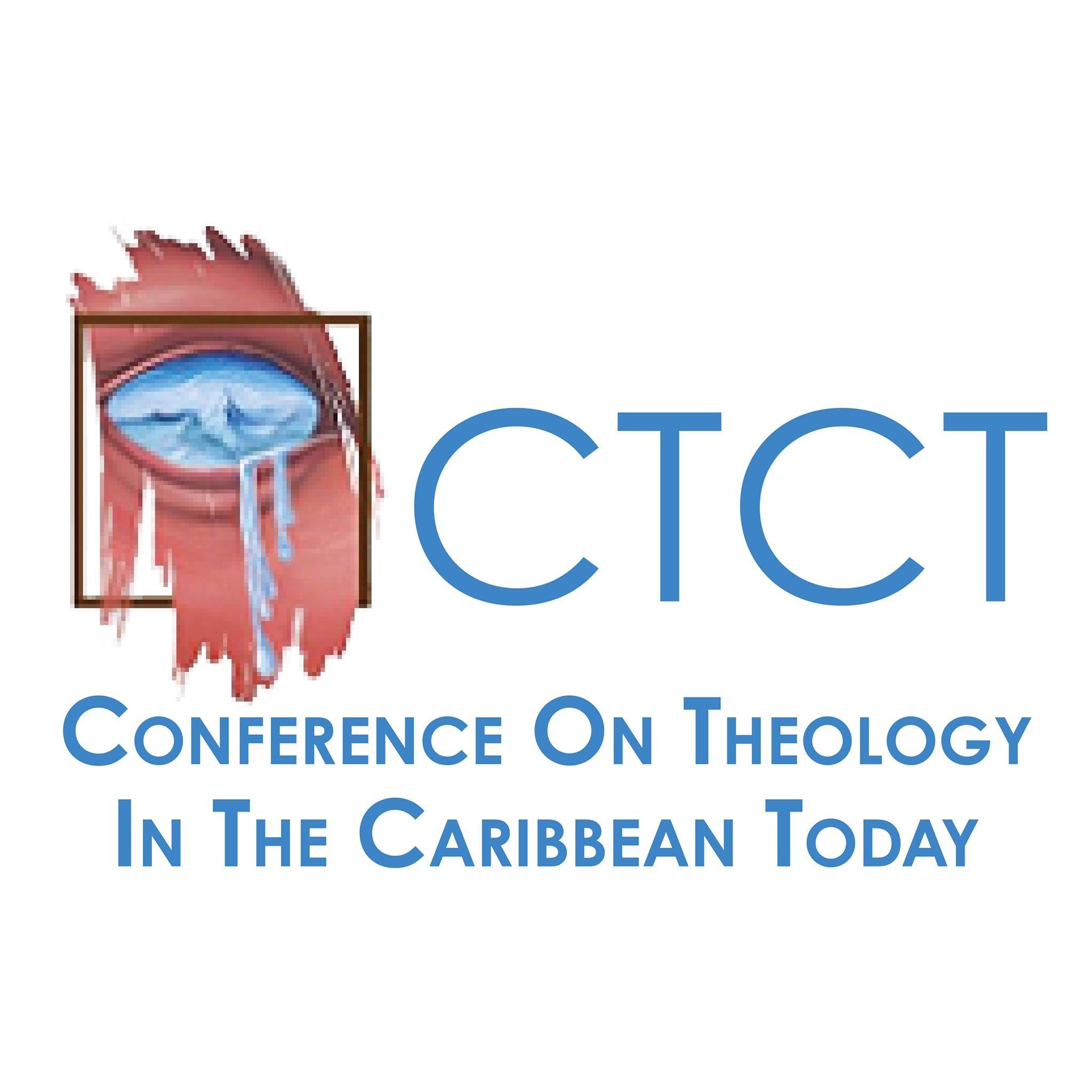Blog Detail
Blog Detail
On Death and Dying
“…unresolved grief combined with the high levels of injustice will turn anger into rage, as we are seeing, and add to the social chaos that already exists…” (Martin Sirju)
The panel ‘Death and Dying’ which took place at the Conference on Theology in the Caribbean Today (CTCT) held in Grenada from June 26-30, examined how we engage with death and mourning in Trinidad and Tobago. While some of the discussion considered how COVID-19 along with other conditions leading to death impacted and even transformed mourning and funerals in Trinidad, it also explored the more intimate and personal experiences of a widow as she shared her walk alongside her husband through his illness and finally his rest.
The first paper explored the funerals of three public figures: Dexter “Blaxx” Stewart, Lionel Jagessar, Sr., and Hazel Brown as case studies and claimed that the processions before and after the formal rituals or services, reflect the needs of the attendees to celebrate the deceased and in these processions, attendees affirm their own vitality through music and dance. This paper suggests that in the multi-cultural, multi-religious space that is Trinidad and Tobago, these processions create places that allow the coming together of various cultural expressions that are not bound by any one faith tradition or sometimes even faith at all.
Fr. Martin Sirju responded to this paper from his role as religious officiant. He pointed out that these processions have a long history in the Trinbagonian context and were often afforded to many people based on their status within the community. He was concerned that in some instances, these processions blur the lines between the sacred and profane, suggesting that there is no difference between the two spaces. His observations asked us to consider the purpose of the funeral and procession and if in fact actual mourning takes place or if rather, by moving quickly from death to celebration we are instead masking our pain. According to him, the Church needs to connect with people and help people find closure especially for those who suffered losses when COVID-19 public health ordinances prevented gathering: “unresolved grief combined with the high levels of injustice will turn anger into rage, as we are seeing, and add to the social chaos that already exists,” Sirju observed.
Gloria Bertrand’s paper was an intimate examination of her journey caring for, and walking with, her husband of 67 years, Harold, and that of their family as they prepared for his eventual death. Mrs. Bertrand reminded us that mourning, especially for those who have an illness, often starts at the time of diagnosis rather than at the time of death. She pointed out that the sick person is also mourning the various changes they are experiencing along with their family and friends who love and care for the individual. For her, it was very important that she listened to the needs of her family, but she learned new and imaginative ways of communicating with Harold while deepening an awareness of her own needs, limitations and engaging in self-care as she lived her marriage vows in this new and powerful way. Her experiences allowed her to write a poem in tribute to Harold and their journey which she shared (see poem below)
While Mrs. Bertrand emphasized the intensity of grief, mourning, and death, she reminded us that even in the pain of loss, love and joy can be present.
Dr. Mc Letchie’s paper examined how by drawing on various cultural elements, funerals can reflect the diversity of our community thus creating an inclusive space where everyone can share their experiences of grief outside of the limitations of any faith tradition. Whether death is sudden, or the result of an illness, Fr. Sirju’s observations asked what are the rituals we utilize to help us reconcile the pain we experience or are we as a culture too quick to move from pain to party? As the floor was opened for questions and comments, Rev. Ingrid Ruben reminded us, “if we eliminate the stage of mourning, what we end up with is more pain and sorrow.”
Here is the complete poem written by Gloria Bertrand on the passing of her husband of 67 years, Harold Bertrand:
Committal
“Today I laid his ashes in the earth from whence he came
With prayer and Him standing by
There were no tears or sadness in our hearts
Only the faith that bore us up on hands of love…”
Love that had sustained us through the torrents of life
Love taken before the altar of a God of love
Love that never permitted us to falter along the way,
The way ordained for us
As we set foot on the journey to love, to the end and beyond
Life and love are mysteries beyond our comprehension
Beyond our reasoning, way beyond our small minds.
It came into being long before we were created, yet it calls us to enter its chambers
And through some mysterious process enables us to experience its joys and sorrows
And live and grow, in and through its warm touch
Sometimes its presence is gentle and sometimes strong
But always everlasting and eternal.
Written by Dr. Alison Mcletchie
